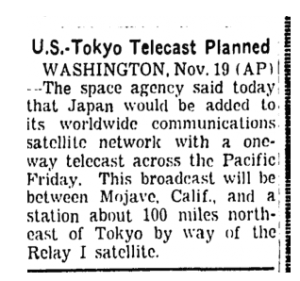 One of the lessons I took from the symposium honoring John F. Kennedy in Tokyo last week was the effect of his assassination on the Japanese people.
One of the lessons I took from the symposium honoring John F. Kennedy in Tokyo last week was the effect of his assassination on the Japanese people.
I knew that JFK was popular in Japan – he was a young, vibrant, exciting leader that led Japan to hope that the two countries could change what had been a troubled alliance. Kennedy matched the vigorous, future-oriented Japanese spirit (remember that?) of the 1960s, as the society built its economic miracle. I knew that the Japanese, like people in the United States and all over the world, were starry-eyed with Camelot. And I knew that today, much of that goodwill transferred to a warm welcome for Kennedy’s daughter Caroline as U.S. ambassador to Japan.
But what I had not known was the powerful effect of his assassination on the Japanese people–and the story behind why this was.
In 1960, at the dawn of the space age, NASA announced that via the Relay 1 satellite, Japan would join its global communications network with a one-way transmission from Mojave, California across the Pacific (see photo). Japanese people thrilled at the idea of watching, live, what Americans were watching.
The first broadcast would be November 23, 1963. To mark the historic event, President Kennedy pre-recorded a speech for the Japanese people. A speech that he planned to give in Dallas.
When Japanese viewers turned on their televisions, they were confused–then stunned. Instead of hearing from JFK, puzzled viewers saw scenic images from the Mojave Desert. (The speech had been pulled when broadcasters received word of Kennedy’s assassination.)
Soon, in that very first broadcast from the United States, a Japanese announcer conveyed the terrible news. Over the next few days the Japanese people saw the wrenching images from Dallas, and then watched the funeral procession in Washington.
A half-century later, everyone remembers. Again and again, Japanese people attending the symposium told me, “I remember when I heard the news.” One man said, “In school our teachers assigned us to write letters of condolence to Mrs Kennedy.” He noted that his wife, who had grown up in a totally different part of Japan, had been assigned to do the same thing.
That day’s broadcast marked two historic events for Japan at the same time. And everyone remembers.
